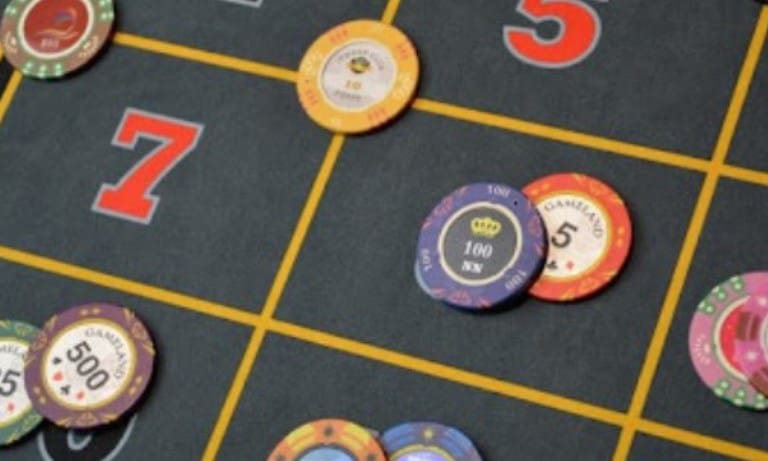The United States would see the most significant change. Representative Barney Frank (Democrat from Massachusetts) is expected to present legislation that will repeal the Unlawful Internet Gambling Enforcement Act in the next few days. Steve Adams (communications director, House Financial Services Committee), of which Mr Frank chairs, said that he supports the bill and wants to see it through. Gavin Kelleher, a researcher at H2 Gambling Capital in Ireland, stated that there is a lot of gambling but no revenue going into the governments.
Although Frank was unsuccessful in this task in 2007, liberalization advocates believe they may get a more friendly hearing in Washington. President Barack Obama boasted his poker skills during the election campaign. Democrats have increased their hold on Congress, which is seen as less hostile than the Republicans to Internet gambling.
Analysts believe that this may be a way to get ahead of the game. The National Football League and the Christian Coalition of America are against repeal. They have promised to resist any attempt to remove the ban. Michele Combs, the spokeswoman for Christian Coalition, said that the group was preparing for massive lobbying and a letter-writing campaign to stop any loosening.
The U.S. leagues of sports are concerned that online betting could increase the likelihood of game-fixing. Even the most ardent online gambling and casino games supporters acknowledge that legalizing internet sports betting is unlikely. This is in contrast to playing poker or other casino games. Nick stated that there is a greater chance of some gaming legislation being approved.
Bartram is an analyst at KBC Peel Hunt in London, a brokerage company. “But it took longer to implement anti-gaming legislation, so it may take longer to remove it.”
Analysts believe that forming partnerships with American casino operators is one option for European companies if the ban is lifted. This would allow PartyGaming and other European companies to share their online expertise. However, analysts said they could struggle to get licenses if they operate alone due to their history with U.S. law enforcement.
Las Vegas executives have remained cautious about legalizing online gambling. In an email, Steve Wynn (chief executive of Wynn Resorts) stated that he believed it would prove difficult to regulate. “Even though it would benefit our company, it would be impossible to regulate. Therefore, we are strongly opposed to it,” he stated.
Other online gambling companies, such as Sportingbet and 888 Holdings, are still discussed with the U.S. Justice Department. Analysts believe they will be joining companies such as Bwin International, whose stock trades in Vienna, consolidate the industry, and possibly move back to the U.S.
Others, such as the Netherlands, Germany, Greece, and Greece, are still refusing to comply with what the European Commission considers an attempt to protect government-sponsored gambling Monopolies from the private competition. In March, the commission published a report that argued that the United States violated World Trade Organization rules in excluding European gambling companies. Even though online horse racing betting is permitted in the United States, this is true. The commission stated that it preferred negotiations over legal action to end the dispute.
The U.S. and its intriguing dance with the casino industry has often oscillated between passion and contention. As the glitter of Las Vegas contrasts with stringent legislations, the virtual domain adds a layer of complexity. This digital realm stretches far and wide, tearing down the confines of brick and mortar.
Peeling Back Time: The story of America and gambling is as old as the nation itself. Recall the gun-toting cowboys in dusty saloons playing cards, and juxtapose that with the neon-lit allure of Vegas. There’s a rich tapestry there, one of embracing and then rebuffing. The digital age, though, tosses in a global element, leading to debates that transcend state boundaries.
The Glittering Prize of Legalization: Imagine, if you will, a scenario where the Unlawful Internet Gambling Enforcement Act is but a relic of the past. This could usher in an economic era, the likes of which we’ve rarely seen. Think billions! It’s not just about the games; it’s the license fees, the tax dollars, the job boost. States, with their coffers often running dry, might just find a goldmine.
Safety: The Big Game: The vast digital ocean of online gambling does come with its lurking sharks. Yet, look across the pond to Europe. They’ve managed to regulate their waters with a tight grip ensuring player safety. America could emulate, learn, and possibly even improve on these safety nets.
Lessons from the Old World: Europe isn’t just a continent; it’s a blueprint. Their regulated systems, like in the UK, stand as beacons of fewer fraud cases and more player security. The U.S. could skip a few lessons and jump ahead with European partnerships, swiftly establishing a robust online gambling realm.
Moral Compass & Public Pulse: To gamble or not? The question isn’t new. But it’s high time we pondered whether it’s about morality or choice. Can’t a secure environment co-exist with informed individual choices? Let’s pivot to advocate for informed decisions and stout barriers against potential pitfalls like addiction.
The Horizon Beckons: Legalizing online gambling in America isn’t a straight path. It’s winding, full of debates and powerful voices on either side. However, if the scales were to weigh benefits against drawbacks, and if we borrow wisdom from global stories, the U.S. might just find a path where both player satisfaction and economic benefits coalesce. The dice are rolling; let’s see where they land in the American saga.


